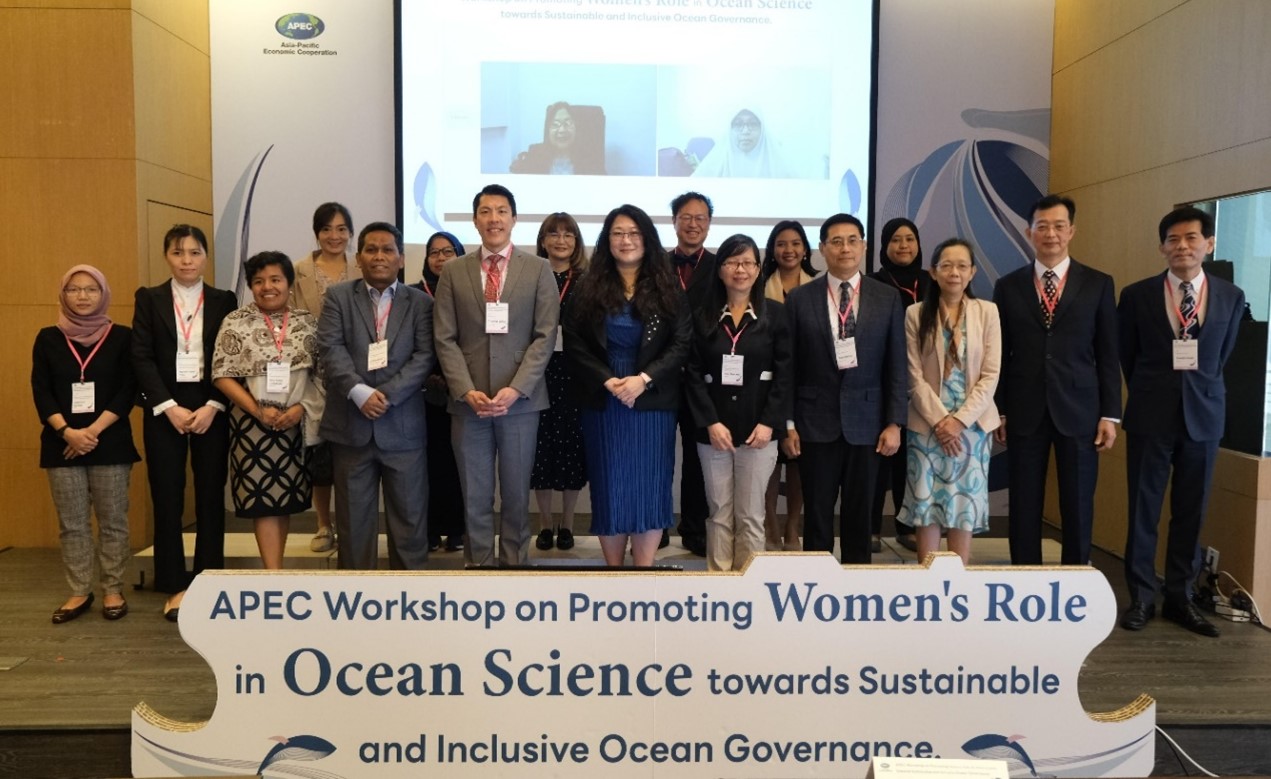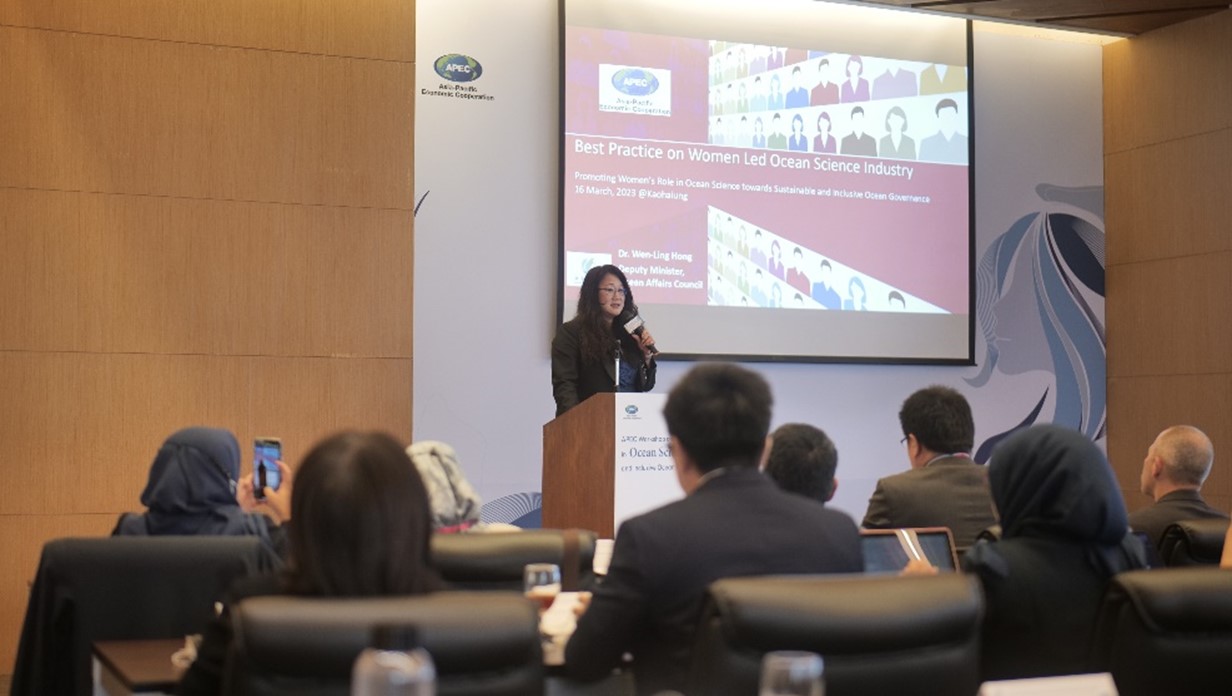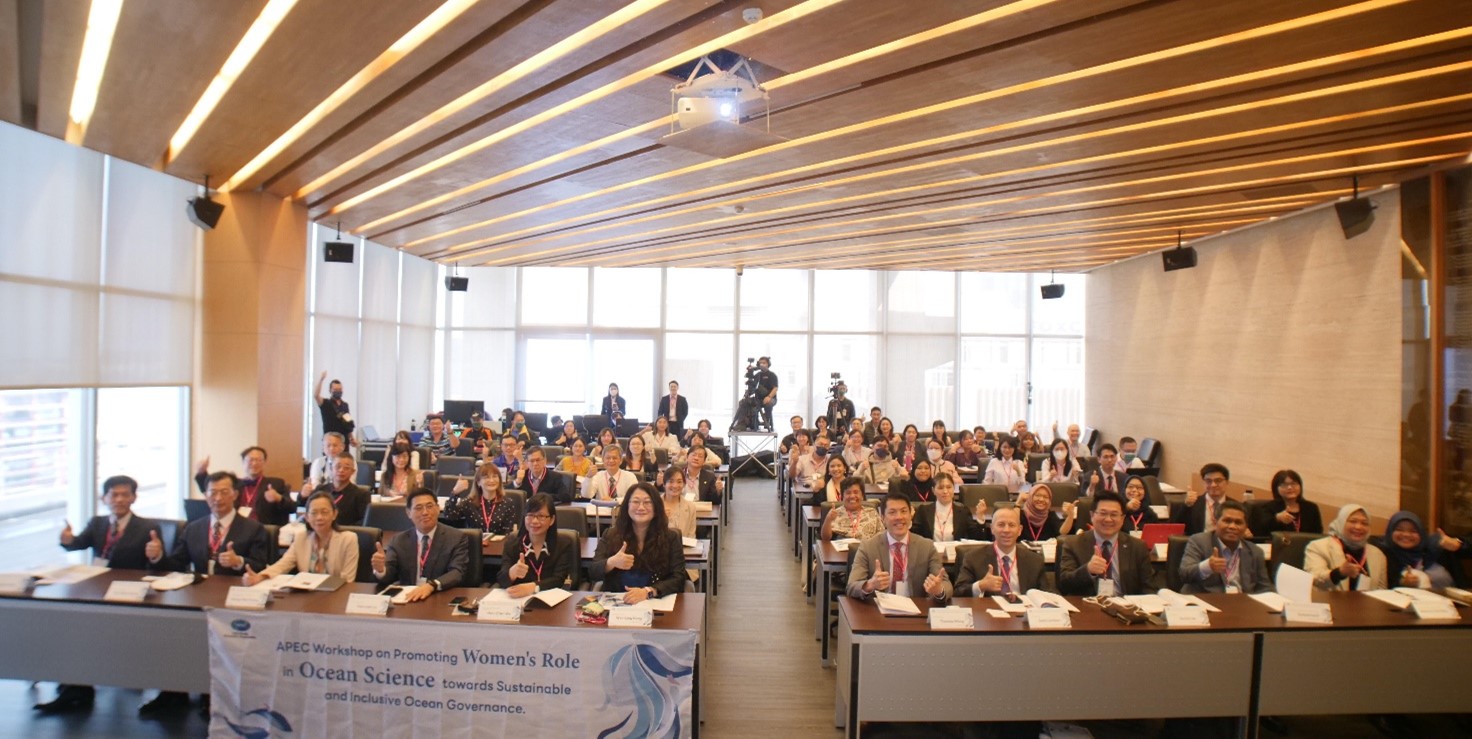OAC hosted the "APEC Workshop on Promoting Women's Participation in Ocean Science for Sustainable and Inclusive Ocean Governance"
OAC hosted the "APEC Workshop on Promoting Women's Participation in Ocean Science for Sustainable and Inclusive Ocean Governance"

The Ocean Affairs Council (OAC) hosted the "APEC Workshop on Promoting Women's Participation in Ocean Science for Sustainable and Inclusive Ocean Governance" in Kaohsiung on March 16-17, in order to promote and enhance the participation of women in the field of ocean science, in line with the United Nations Sustainable Development Goals (SDGs), the "Decade of Ocean Science for Sustainable Development" initiative, and the APEC 2023 theme "Creating a Resilient and Sustainable Future for All". Representatives from APEC member economies were invited to Taiwan to share and discuss issues related to enhancing regional gender awareness and creating an inclusive environment in the field of ocean science, as well as advancing toward gender equality and inclusiveness in ocean governance.
In her opening remarks, Wen-Ling Hong, Deputy Minister of the Ocean Affairs Council, pointed out that global female ocean science professionals currently account for 39% of the total, but the participation of women in ocean science and ocean governance is still relatively limited due to structural factors such as social, cultural, and economic influences, and their efforts and contributions to ocean science are often overlooked. "Promoting gender equality" and "empowering women" are key factors for achieving sustainable ocean governance. Through this workshop, it is expected that dialogues and exchanges among various stakeholders can promote regional gender equality in APEC and realize the vision of sustainable and inclusive ocean governance.
 Deputy Minister of the Ocean Affairs Council Wen-Ling Hong
Deputy Minister of the Ocean Affairs Council Wen-Ling Hong
The APEC workshop attracted nearly a hundred participants from various sectors, including representatives from APEC member economies such as the Philippines, Peru, Chile, Indonesia, the United States, Vietnam, Malaysia, and Papua New Guinea, as well as distinguished figures from academia, civil society organizations, and industry. Through sharing, dialogues, and exchanges, the workshop aimed to explore strategies for promoting women's participation in ocean science in the Asia-Pacific region, and to encourage women's involvement in the "environment and technology" fields, bridging the gender gap, innovating ocean science knowledge and practices, and working together towards sustainable and inclusive ocean governance.

